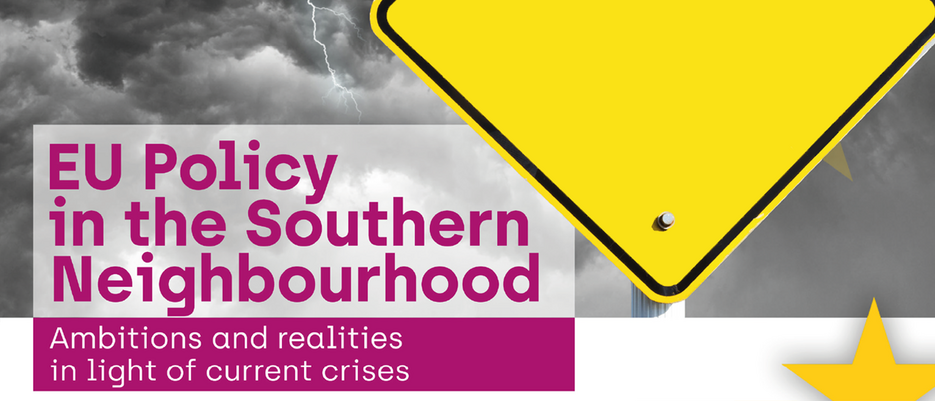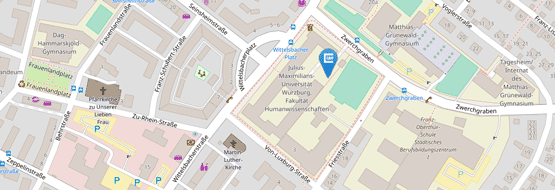EU policy in the Southern Neighbourhood: Ambitions and realities in light of current crises
| Date: | 07/11/2024, 8:00 PM - 9:30 PM |
| Category: | Fakultät für Humanwissenschaften, Podiumsdiskussion |
| Location: | Residenzplatz 2 (Residenz), Toscana-Saal |
On Thursday, July 11, 2024, a public round table on "EU policy in the Southern Neighbourhood: Ambitions and realities in light of current crises" will take place in the Toskana Saal of Würzburg Residence.
Panelists:
- Omar Shaban, Director of PalThink for Strategic Studies, Gaza, Palestine
- Lara Azzam, Senior Advisor, Berghof Foundation, Beirut, Lebanon
- Sarah Rennick, Deputy Director of Arab Reform Initiative, Paris, France
- Saida Ounissi, Consultant, former Minister and Member of Parliament in Tunisia
Opening: Prof Dr. Sonja Grimm, Chair of International Relations and European Studies, Julius-Maximilians-University of Würzburg
Chair: Véronique Dudouet, Senior Advisor, Berghof Foundation, Berlin, Germany
When: Thursday, 11 July 2024, 20:00-21:30
Where: Toskana Saal, Residenz Würzburg
Organisation and Contact: Prof Dr. Sonja Grimm, Chair of International Relations and European Studies, Julius-Maximilians-University of Würzburg, Faculty of the Humanities, Wittelsbacherplatz 1, 97074 Wuerzburg, Email: ib@uni-wuerzburg.de
With its Southern Neighbourhood partnerships, the European Union seeks to strengthen and deepen the political and economic relations between the EU, its Member States and partner countries in the Middle East and North Africa, based on democracy, human rights and the rule of law. A decade after the 2011 ‘Arab Spring’ uprisings, a ‘new agenda for the Mediterranean’ was launched in 2021 with the view to support democratic consolidation and strengthen the conditions for sustainable peace, stability and prosperity. However, the rise of authoritarianism and the resumption of violent conflict and war in the region as well as processes of de-democratization inside the EU increasingly question the premises of this policy.
A distinguished group of scholars and policy experts will reflect upon and discuss current developments in the Southern Neighbourhood and its implications for the EU’s foreign policy and influence in the region. Topics to be discussed will include questions such as: What are (de-)democratisation trends and prospects on the Southern borders of the Mediterranean? How are those trends impacted by the competing influences of EU actors and other geopolitical players? How do political and economic elites, civil society activists, and ordinary citizen perceive EU policies and practices across the region? What are the implications of authoritarian backlash in Tunisia, economic collapse in Lebanon or war in Israel-Palestine for the European Neighbourhood Policy?
This event is organized by the Chair of International Relations and European Studies, Julius-Maximilians-University of Wuerzburg, and the Research Consortium EMBRACE: Embracing Change: Analysing obstacles and advancing democratization in the European Neighbourhood that is funded by the Research Framework Program “Horizon Europe” of the European Union.



